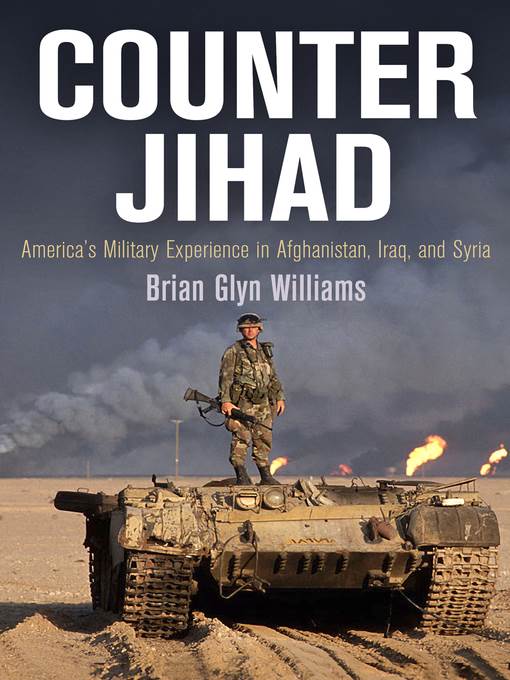
Counter Jihad
America's Military Experience in Afghanistan, Iraq, and Syria
کتاب های مرتبط
- اطلاعات
- نقد و بررسی
- دیدگاه کاربران
نقد و بررسی

October 31, 2016
Williams (The Last Warlord), professor of Islamic history at the University of Massachusetts, Dartmouth, designs a primer for understanding America’s current strategic position in the Middle East and the way the U.S. government uses the military for political objectives. He relates that his university students know little to nothing of modern Middle East history, U.S. military operations there, nor who opposes those operations. Williams traces the roots of conflict in the Middle to biblical times, succinctly and comprehensively highlighting the major events of the last 3,000 years that are relevant to understanding the modern Middle East. He then argues that Operation Desert Storm placed the U.S., Al Qaeda, Iraq, and Afghanistan on a collision course leading up to the attack of 9/11 and subsequent military operations in Afghanistan and Iraq. Finally, the book brings the reader logically to the state of U.S. Middle East policy today, including ongoing operations in Syria, Iraq, and Afghanistan, as well as the host of other issues, including the recent terrorist attacks in Paris and Brussels. Williams manages to articulate complex concepts and history to provide a one-stop synopsis for the knowledgeable reader and a great introduction to the material for laypeople.

Starred review from October 1, 2016
A reasonable, step-by-step look back at the war on terror that aims to dispel misconceptions held by a younger generation.A specialist in the study of terrorism who has worked with the CIA to track suicide bombers in Afghanistan, Williams (Islamic History/Univ. of Massachusetts, Dartmouth; The Last Warlord: The Life and Legend of Dostum, the Afghan Warrior Who Led U.S. Special Forces to Topple the Taliban Regime, 2013, etc.) finds his students ignorance about the Afghanistan and Iraq wars troubling. In this meticulous survey, he offers an after action report to help readers understand why the U.S. is (still) deeply mired in wars in three Middle East countries. From his previous workse.g., on Uzbek Afghan warlord Abdul Rashid Dostum, who helped the Americans defeat the Taliban in 2001the author has certainly immersed himself in the complicated ethnic makeup of Afghanistan (Williams provides a useful map of the major ethnic groups). He grasps the deep roots of the resentments in the region, from the ancient Sunni-Shiite split to the Palestinian-Israeli conflictand Americas pro-Israel position. One of the salient points the author hammers home as he tracks the beginning of the U.S. military presence in the region is that from 1991 to 1998, Saddam Husseins atomic bomb capability was essentially dismantled (despite his boasts), rendering George W. Bushs weapons of mass destruction proclamations absolute hype. Moreover, there was no evidence that Osama bin Laden collaborated with Hussein, while only one farsighted U.S. official, former national security adviser Richard Clarke, was tracking the al-Qaida threat, especially after the 2000 sinking of the USS Cole. Williams also examines some of the persistent conspiracy theories about 9/11e.g., that the attack was the work of the Zionists. A refreshingly nonpolemical work that walks through the benumbing stages of war and response to the present Islamic State group problem.
COPYRIGHT(2016) Kirkus Reviews, ALL RIGHTS RESERVED.

























دیدگاه کاربران